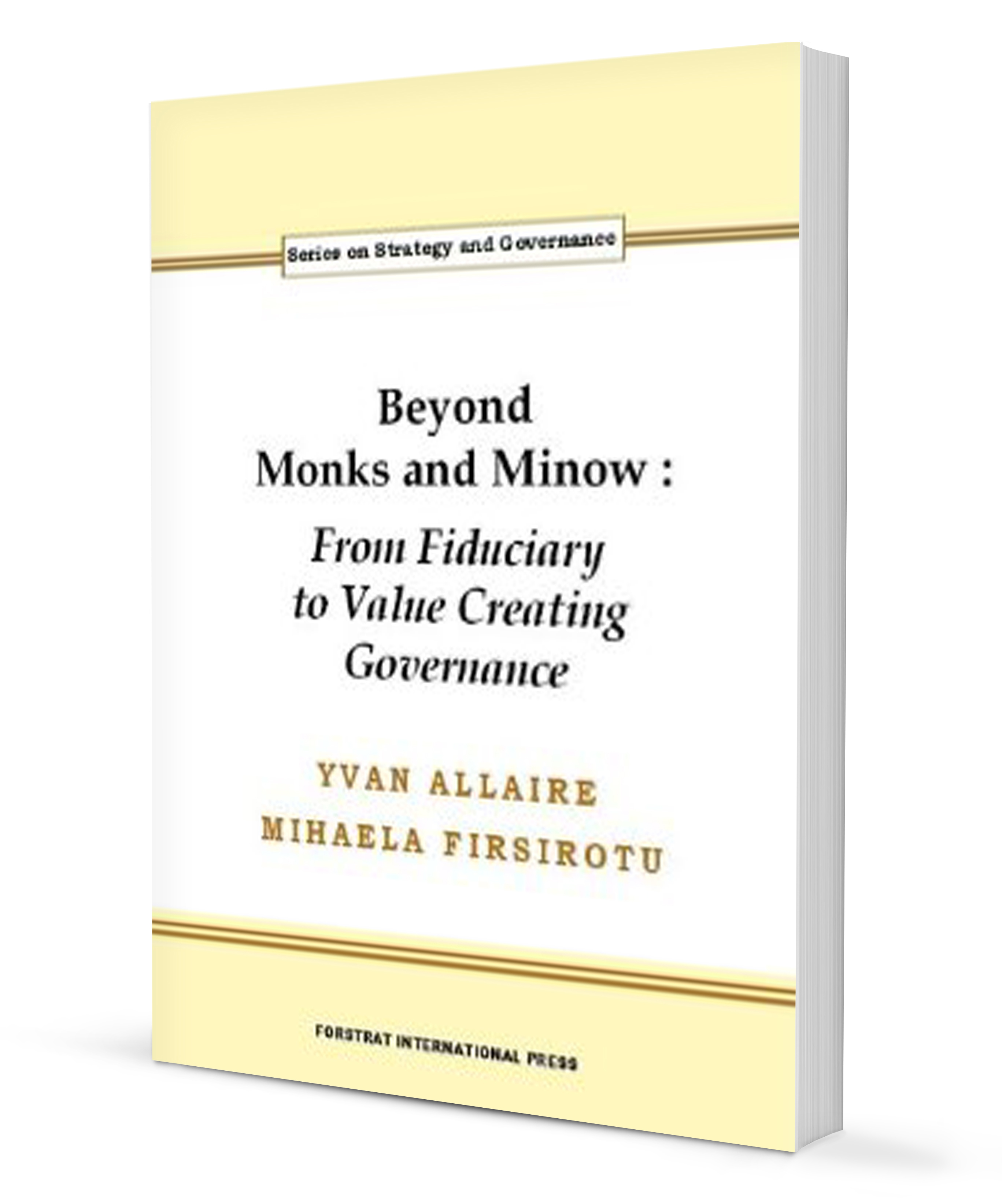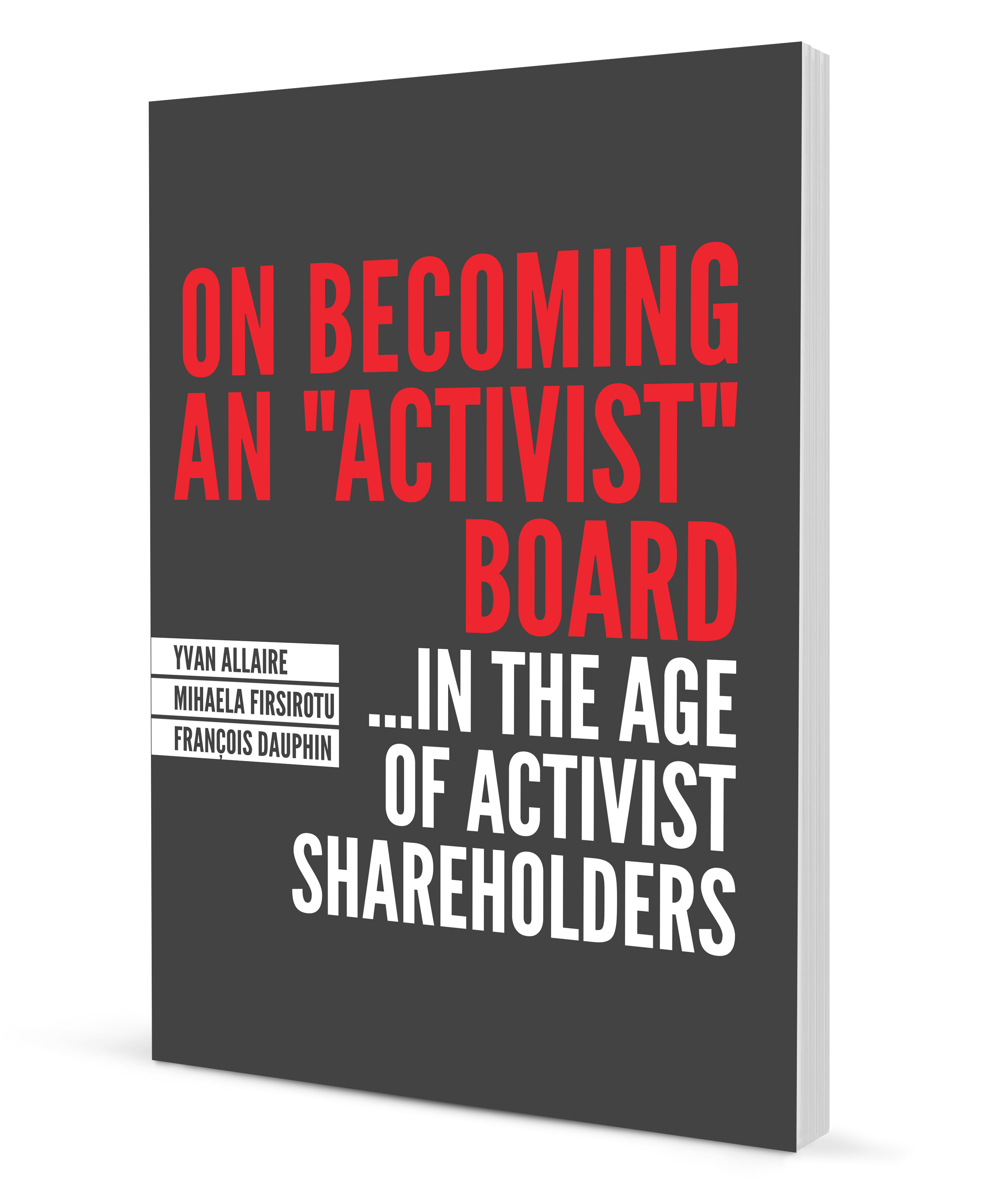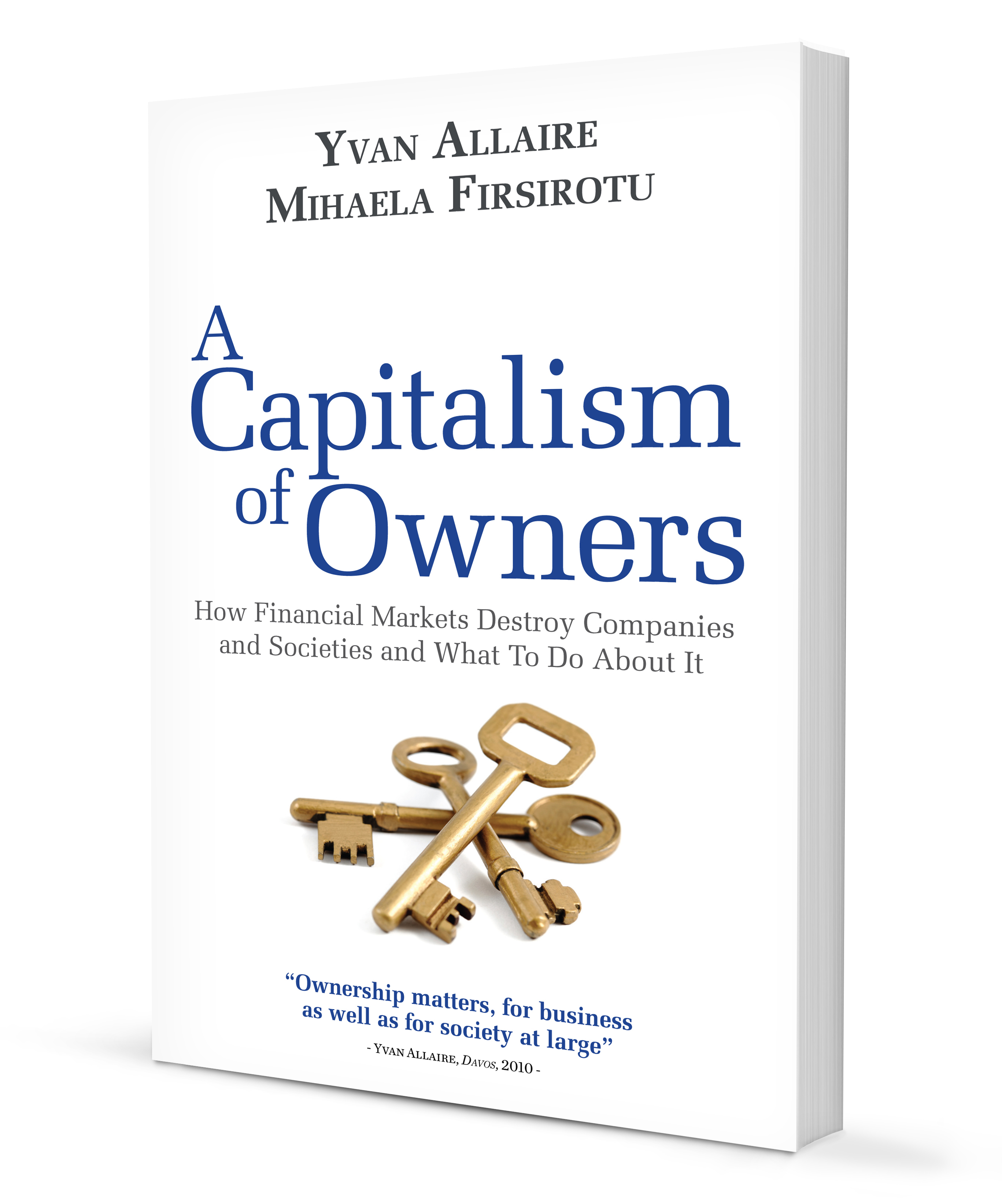Beyond Monks and Minow
Yvan Allaire and Mihaela Firsirotu
The distember of our times and investors’ belated outrage has turned corporate governance into a growth industry. Along with much hand wringing, disconsolate essays on ethics, host of new rules and regulations have come the banal and the trivial, invariably trotting on the allure of a surging.
The essays contained in this monograph were written à chaud over the period of January 2002 to June 2003 as the debate was raging over the causes of this latest round of financial fiascos and over the prosper measures to prevent a recurrence. The leitmotiv of our texts is that we must seek the root causes for what happened before launching into poorly conceived, and ultimately self-defeating, crusades.
We are at great risk to experience again the perverse effects of good intentions.
Public censure and exacerbated fiduciary governance will easily turn corporations into sterile bureaucracies, devoid of risks as well as of growth and innovation. Corporate executives may well become again secure and timid functionaries, intent on never committing any sin of action but only sins of omission, as the later rarely leads to any sanction.
Board of director, staffed with independent “governors”, are expected to assert their authority over management; they will come to share with executives a new risk aversion and a positive loathing for any initiative with large upside but potential downside. Their reputation is at stake; it can only be damaged by initiatives that turn sour and will be little enhanced by the success of risky initiatives.
The theme of this monograph is that it does not have to be this way. Prosper corporate governance can and should be creating value for shareholders. There are ways of coping with the fundamental flaw of governance:
the asymmetry of information and expertise between board members and management. There are ways of compensating executives that will work better than stock options; and if we keep options, there are ways of making them work much better.
“Good” corporate governance calls for a fundamental re-arrangement of the ways board members are selected and elected; it requires a new breed of board members, attuned to the exigencies of market-driven corporations and truly knowledgeable about the company’s economics, issues and challenges. It is not too much to ask; it is indeed very feasible; we hope this short monograph will make a significant contribution in showing the way forward!
- Topics:
- Ethics
- Value-creating governance







